Nestled in an unassuming corner in Kathmandu’s Saraswatinagar — by the side of the eponymous road stands a modest father-and-son run carpentry business Shree Barahachhetra Furniture and Glass house. The workshop, itself squashed between two huge residential houses and lower than the road, stands resilient amidst towering structures that have risen around it.
Spread over 3,500 square feet, the establishment houses an office, a workshop, a kitchen, and a metal workshop as a recent addition.
We interviewed Ethan Bhujel, a 29-year old entrepreneur at the helm of this business.
After having worked for a couple years as a carpenter, Ethan’s father, Mr. Chandra Bahadur Bhujel purchased the business in 2061 B.S for a sum of Rs. 25,000. Almost two decades down the road, Barahachhetra Furniture made a noteworthy turnover of over Rs. four million in sales last fiscal year.

Ethan’s active participation in the business began some four years ago. Now the father-son duo jointly run the business, with Ethan’s father overseeing the workshop’s daily operations and him focusing on client interactions, site visits and making deliveries. As he takes over the business, Ethan, with his youthful energy, has vision, and ambition to steer the business in a new direction.
Embracing digital marketing
Recognizing digital marketing and social media’s potential to help businesses reach an entirely new generation of customers, Ethan was quick to establish his presence online. He is particularly active in Facebook Marketplace due to its convenience for customers and businesses alike. “It allows for quick and easy communication between a seller and prospective clients. Your products are visible to a far greater number of people there” he remarked.
And indeed the numbers give testament to it. He notes that a significant proportion of commissions and sales at present come through Facebook Marketplace.
Visit Ethan’s facebook marketplace profile here |
Innovative thinking brings distinction
Drawing inspiration from global designs found on the vast expanses of the internet, Ethan tries to incorporate them in his own offerings. Based on the success of any such particular design, they are incorporated into the product line. His work in live-edge furniture being an example of this.
While some established manufacturers have already been working in live-edge designs, it remains limited to a select clientele comprising affluent individuals and establishments owing to its high cost. What sets Ethan apart is his initiative to democratize this niche by bringing down costs, making live-edge furniture not only affordable but also popular in the broader market.
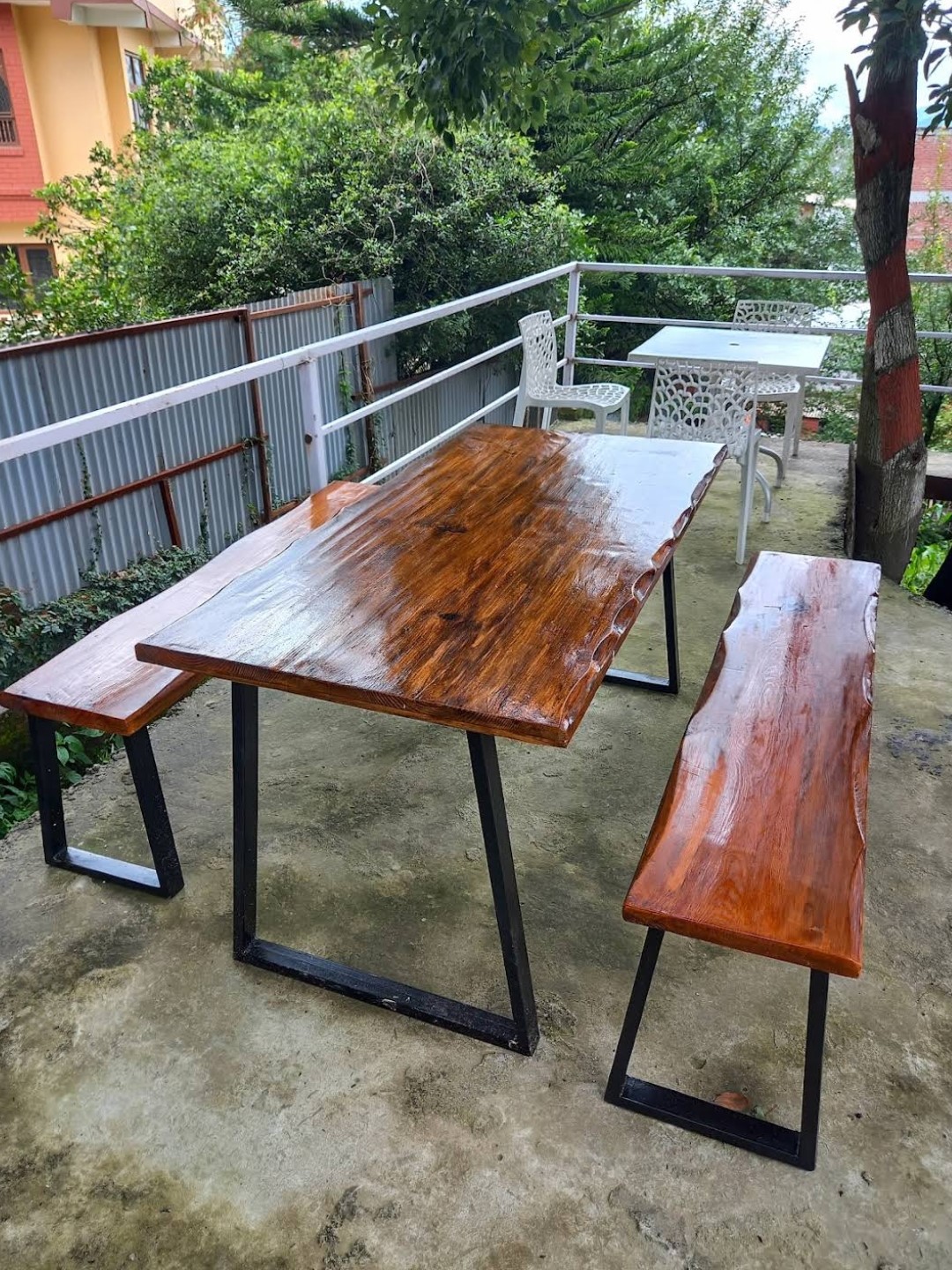
His first venture in live-edge furniture came as a commission to his workshop by a café in Boudhha. The project was a financial success bringing in substantial profits. However, it also came forth with a valuable lesson. Although the finished piece was initially impeccable, it later succumbed to warping due to insufficient seasoning, and required fixing with braces. Despite setbacks, Ethan views the experience as invaluable.
“Regardless of the issues, the project was worthwhile for the experience and lessons I learned from it”, Ethan recalls.
He tells us that approximately 20% of projects bear the risk of post-production defects. Challenges also arise in terms of defective timber. “This isn’t surprising in the carpentry business. Dealing in a large volume of lumber, it is expected that some of the pieces will turn out to have internal defects that are revealed only when they are sawn” he explains.
Customer-centric approach wins hearts
Owing to the experience garnered working in sales and marketing during his time in foreign employment, Ethan is well-aware of the value of customer service. Acknowledging the inevitability of errors in large-scale productions, he makes it his priority to build customer trust and retention, even if it may entail bearing some losses.
In one case, when a table commissioned by one of his clients began to warp, he had it replaced with a new one free of cost. For his post-sales service, the customer later referred him to a new client for a project amounting to over Rs. 250,000.
Through this commitment in providing excellent customer service, Ethan has established himself as a trustworthy manufacturer that has resulted in more referrals and sales.
Adapting to a changing business landscape
As consumers’ furnishing preference shifts towards contemporary modular designs, Ethan observes a renewed interest in wood — owing to its presence and feel — in the hospitality sector running parallel to it.
To cater to this shift, Ethan began offering contemporary designs in the market, incorporating metal to what would traditionally be wood-only furniture.. This fusion strikes a balance between quality and cost, with its minimalistic design and sleek, modern look offering a modern, sustainable, and cost-effective option to customers.
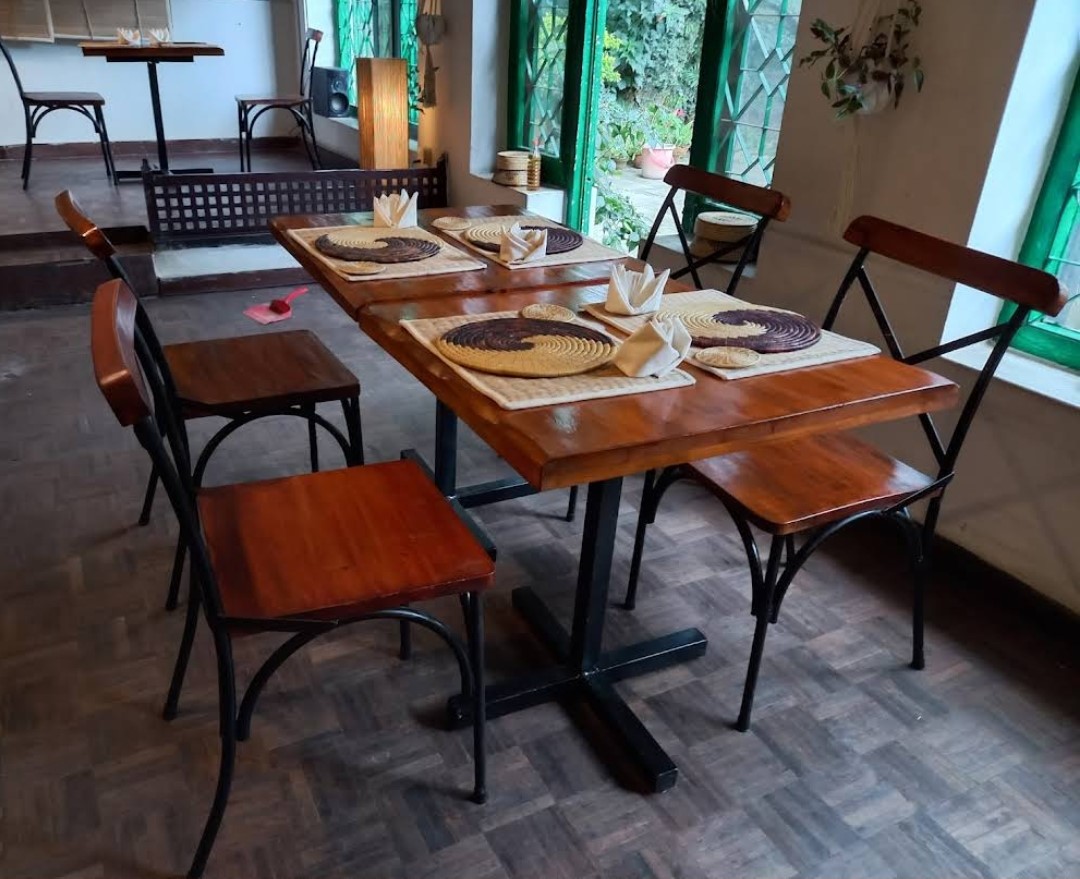
A substantial improvement in the Nepali populace’s spending power, expanding economic activities in the city, coupled with people’s preference for wooden furniture over their plastic and metal counterparts means that Ethan envisions scalability as well.
Human resources and compliance conundrums
Mindful of evolving regulations, Ethan is making efforts towards being a compliant business.
Presently, the business’ staff consists of a team of 12 salaried workers, including two seasoned craftsmen. Although he realizes the need to introduce proper safety measures and procedures, he remarks that it is often difficult for small businesses to become fully compliant due to financial constraints and a lack of such a work culture. As an example, his attempts at compliance with the recently introduced social-security fund mandate, was curtailed by the worker’s own reluctance.
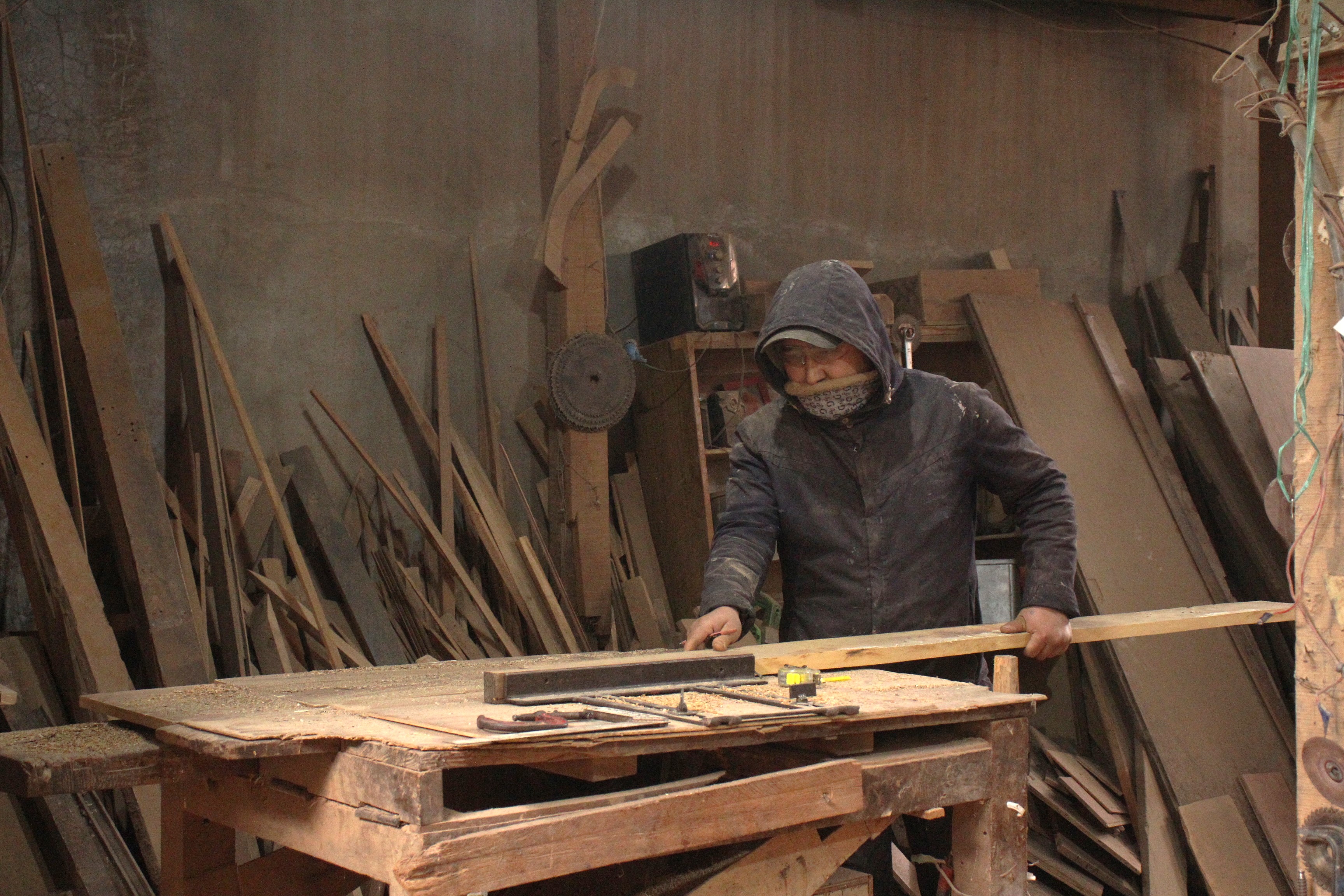
“The workers themselves aren’t fully aware of the benefits and security these programs provide. The idea that they need to deposit a certain amount of their income in the fund is a major deterrent. In their view, they would rather keep the whole money than seemingly cutting from it”, he explained.
He however expressed commitment to enroll his workers into the social security fund in the coming days.
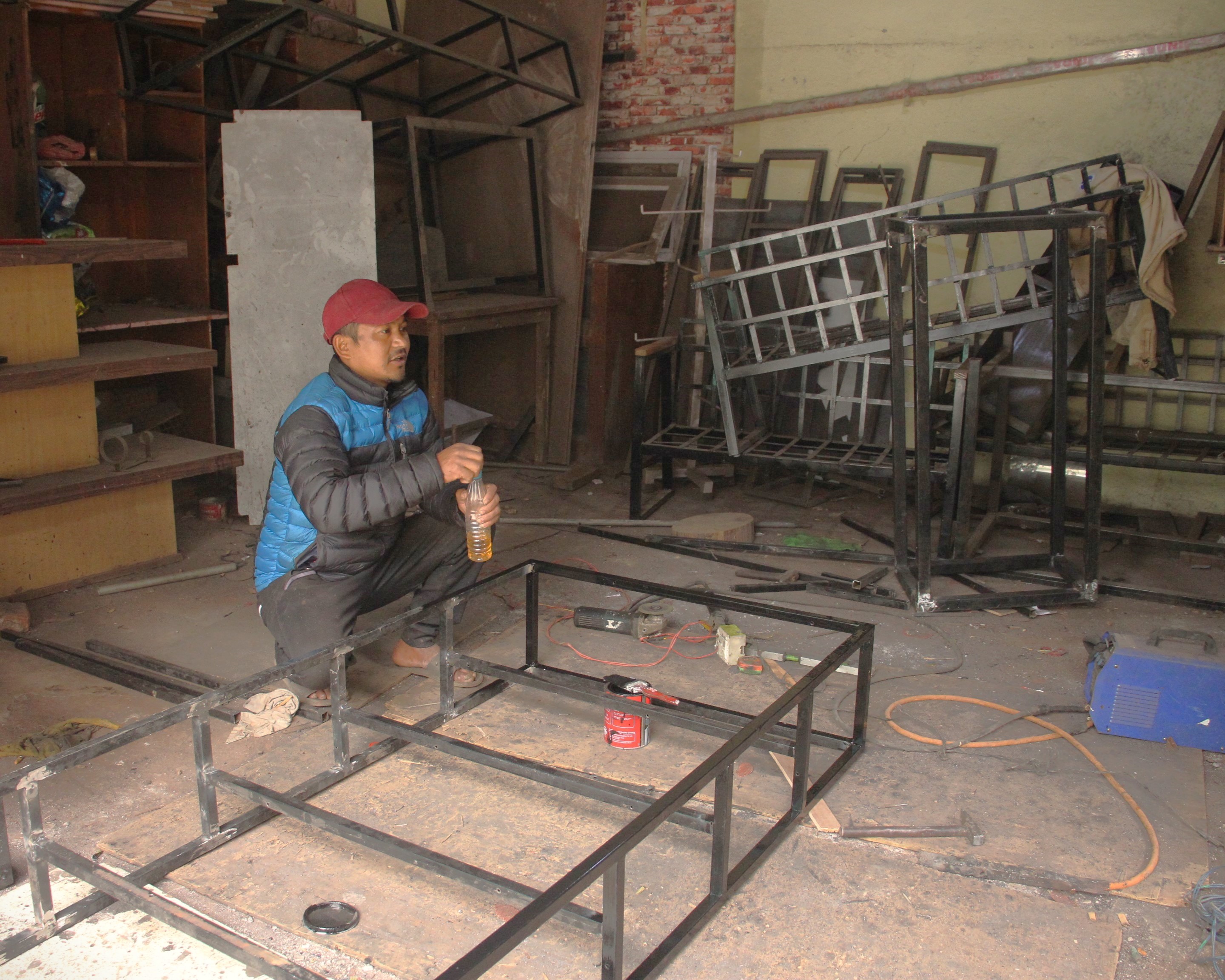
Future plan
Amidst changing social and legal conditions regarding his business, Ethan’s foremost focus has been on relocating his workshop away from residential areas and is currently in communication with people to reach an agreement for renting a plot of land in Thali that is twice as big as the area the workshop stands on now.
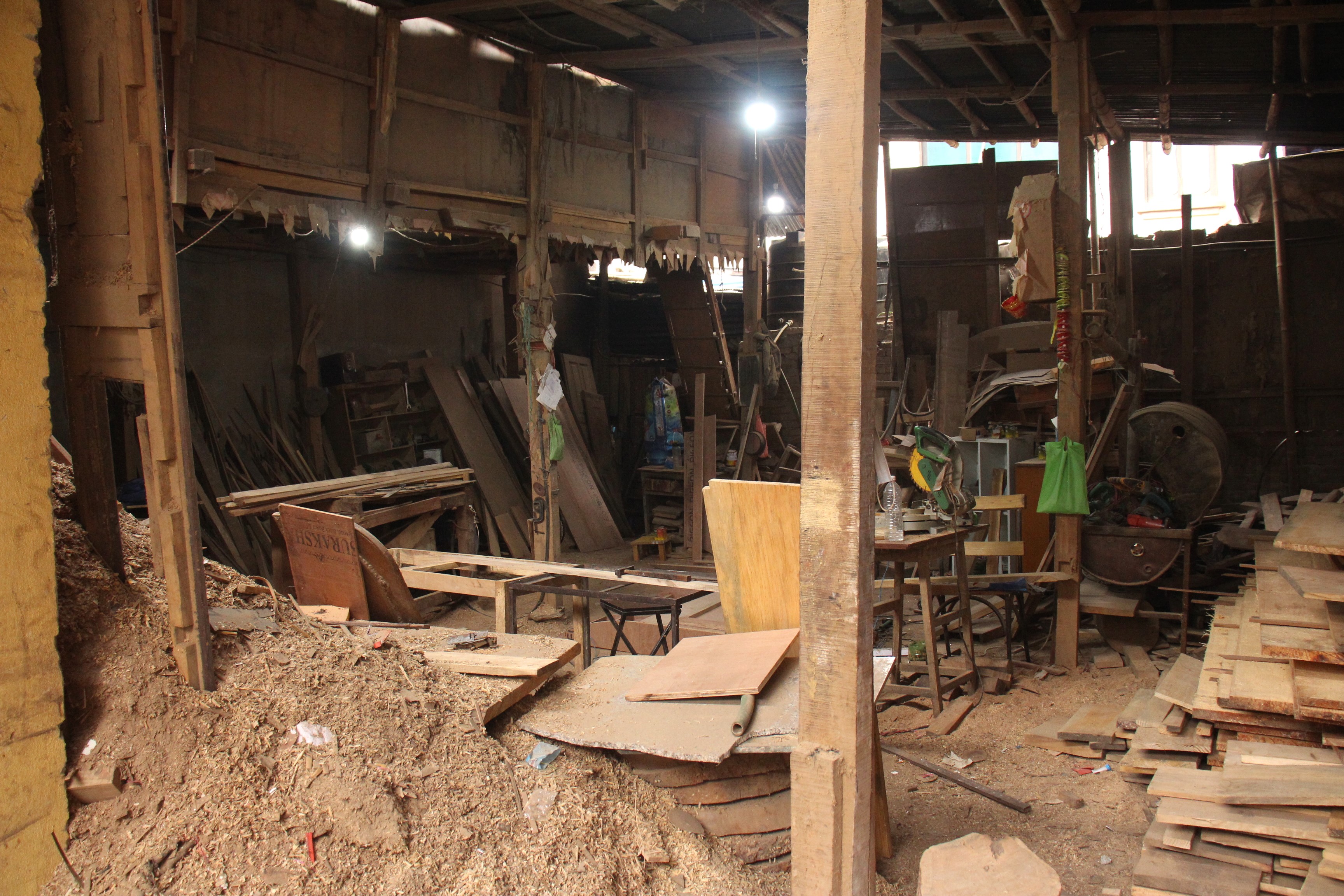
After relocation, he intends to invest in new machinery with advanced safety features, sound-proofing, and introduce measures for efficient workspace management.
Ethan is also preparing to purchase a vehicle for the business, cutting costs in transportation fees on which he spends an upwards of Rs. 50,000 per month. Besides allowing him to offer free delivery services to his customers, the savings on transportation costs will also result in lowering the goods’ prices for them.
On the horizon are his plans to introduce a customer-participatory feature that will allow enthusiastic customers to participate in the designing and making of the articles they commission.
He tells us about how he’s had several customers requesting to work on their commissions in his workshop. “People are attached to things of their own making — things on which they’ve contributed their imagination, sweat, and labor.”
This could mean many things: a display of their taste, a tangible product of their hard-work, an extension of their personality. Through customer participation, each piece is unique, bearing on it marks of the customer’s individuality. “As they say, “It’s not just the product, but the experience too”’, he quips.
With a focus on safety and sustainability, he plans to invest in new machinery with advanced safety features, sound-proofing, and introduce measures for efficient workspace management.
Besides this, he is also preparing to offer training and apprenticeship programs at affordable fees, exemplifying his commitment in nurturing a new generation of craftsmen.
Challenges
The carpentry business nonetheless grapples with its own set of hurdles.
Due to the government’s restrictive policies on lumbering, a large portion of domestic furniture-based manufacturers’ raw materials’ needs are fulfilled by imports despite Nepal’s rich forest resources — driving up the cost for furniture workshops.
Although the furniture market is growing, imported furnishings occupy a significant portion of the market share displacing domestic products. In the last two fiscal years alone, Nepal imported furnishing products worth Rs. 4.4 billion which includes furniture made from wood, metal, plastic and other materials. Competition with imports remains a challenge for the local manufacturers.
On getting in on the carpentry business
Ethan’s message to aspiring carpenters is clear: passion, ambition, openness towards change and an inclination to innovate and experiment.
With resilience, foresight, and drive, he sees this to be a promising venture for hard-working individuals with love for the wood craft.














